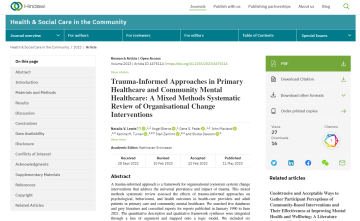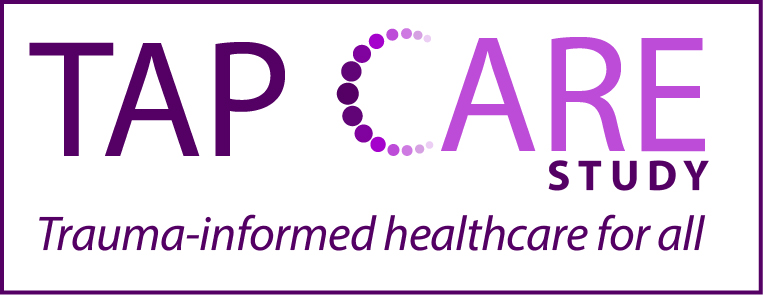Evidence for trauma-informed organisational change programmes
- 16 May 2023
Trauma-informed organisational change programmes may improve conditions for staff and patients in primary care and community mental healthcare, according to research published in Health and Social Care in the Community. Evidence was very limited and conflicting, but researchers found potential improvements to: staff readiness and sense of community, patient readiness for disease management and their access to services, staff and patient safety, some patient health outcomes.
Many patients and members of staff in primary care and community mental health care services have experienced individual, interpersonal, and collective trauma (e.g., rape, domestic abuse, political terror and war). Traumatic experiences accumulate throughout a person’s life. They shape how we behave and harm our health.
Healthcare services which do not recognise how universal and impactful trauma is, can fail to engage patients in treatment and re-traumatise patients and staff. Trauma-informed organisational change programmes can improve the way a service works and prevent re-traumatisation. Many UK policies and guidelines recommend implementing trauma-informed change in healthcare organisations.
Researchers from the Centre for Academic Primary Care, University of Bristol funded by the Bristol Biomedical Research Centre reviewed evidence for the effectiveness of trauma-informed organisational change programmes in primary care and community mental health care. This review was part of a programme of research on trauma-informed health systems (TAP CARE study).
The research team found that organisations developed bespoke models of trauma-informed change tailored to their needs, abilities, and preferences. Common organisational activities included an allocated budget, ongoing training and support for all staff, identification and response to trauma, evaluation of change, changes in physical environments, cross-sector collaboration, engagement of people with lived experience and leadership support.
Researchers found some evidence to suggest that implementing programmes at an organisational level may change organisational culture and create safe environments for patients and staff. Very limited evidence suggests that these programmes may improve patient quality of life, chronic pain, and mental health. No studies measured adverse events, harm, cost effectiveness, or staff health.
Dr Natalia Lewis, lead author, said:
“We conducted a methodologically robust systematic review which found a very limited and uncertain evidence for the effects of trauma-informed organisational change interventions on staff and patient outcomes, with an overall direction towards some improvement.
“Funders, commissioners, policy makers, and healthcare providers can use this evidence to inform guidelines, policies, and their decisions about developing and implementing evidence-based trauma-informed organisational change programmes in primary care and community mental health care.”
Professor Stanley Zammit, mental health theme lead, said:
“The TAP CARE systematic review has provided us with valuable insights regarding the evidence supporting the implementation of trauma-informed approaches in primary care and community mental health services.
“Going forward, Natalia’s work forms an integral part of Bristol BRC’s Mental Health Theme programme of work aimed at developing interventions to improve treatment access and healthcare to people with mental health difficulties.”

Trauma-Informed Approaches in Primary Healthcare and Community Mental Healthcare: A Mixed Methods Systematic Review of Organisational Change Interventions
Links and downloads
Download infographic illustrating evidence for trauma-informed organisational change
